CCTV News:Nowadays, positioning and navigation is a must-have for home travel for many people. But when it comes to positioning and navigation, everyone still thinks of GPS first. GPS in the United States has almost a monopoly position due to its seniority and fame, and has even become synonymous with navigation and positioning. But now, this "big net" that has monopolized for decades is finally about to be broken by China! That is the Beidou navigation system independently developed by our country.
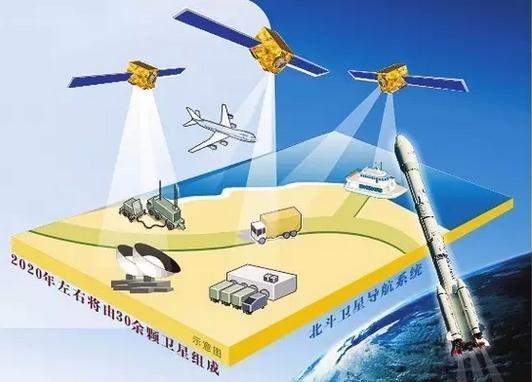
At the 8th China Satellite Navigation Academic Conference that just ended last week, our country’s Beidou navigation system once again became the focus of attention. It was revealed that 15 Beidou satellites are currently in stable operation in orbit and have completed service coverage in the Asia-Pacific region. Five new-generation Beidou satellites have completed in-orbit commissioning and are about to be connected to the network. This means that starting from the second half of this year, our country’s Beidou satellites will officially start global networking, pulling off the curtain of the Beidou system for global services. It is expected that by 2020, global service capabilities will eventually be formed.
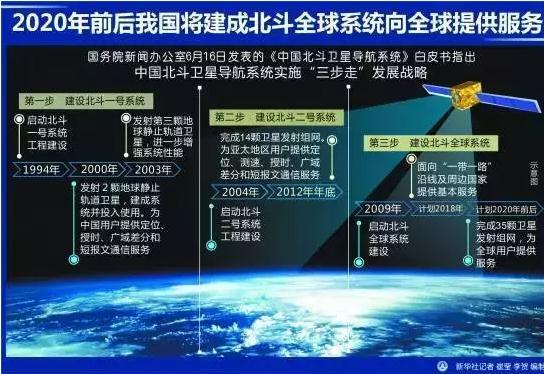
So, can China’s "Beidou" smoothly enter the market of European and American countries in the future? Where will "Beidou" rank in the global satellite navigation system? Xu Ying, born in 1983, a navigation system scientist, has been engaged in Beidou-related research for more than ten years, and is the youngest researcher and doctoral supervisor since the establishment of the Institute of Optoelectronics of the Chinese Academy of Sciences. Under Xu Ying’s telling, the story of the Beidou system becomes easy to understand, and you will refresh your understanding of this "important weapon of the country"??

What is "Big Dipper"?
The satellite navigation system is a group of stars 20,000 kilometers away from us, providing us with location-based services. The satellite navigation system is referred to as the GNSS system, and there are a total of 4 VIP members in the GNSS club. In addition to the well-known US GPS system, including Russia’s GLONASS system, the European Union’s Galileo system, and our country’s independently built Beidou satellite navigation and positioning system.
The Beidou satellite navigation and positioning system is a satellite navigation and positioning system independently built by our country. It is currently in the stage of construction and application promotion. It consists of five geostationary orbit satellites and 30 non-geostationary orbit satellites. The Beidou satellite navigation system is expected to provide a global service around 2020.
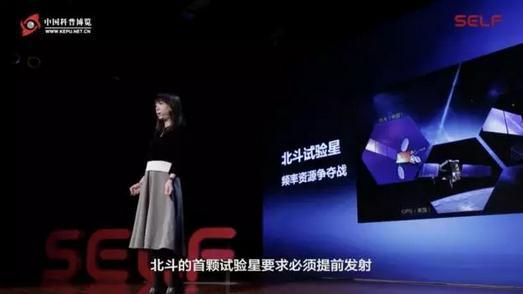
In the GNSS club, the members are most concerned about the issue of frequency resources. All frequency resources must be applied to the ITU, which will be divided by the ITU. In the initial stage of the construction of the satellite navigation system, the frequency resources were relatively abundant, and the relatively early GPS system and GLONASS system did not have the problem of frequency resource conflict. When the Beidou system and the Galileo system were established, the frequency competition was very obvious. At that time, the Galileo system actually applied for this frequency resource in advance, but due to the economic crisis in Europe, the Galileo system funding chain was broken. Although they launched satellites and occupied orbital positions at that time, they did not transmit this frequency signal. According to the "first come, first served" regulations of the ITU, whichever country can launch this satellite first, and the satellite transmits the signal of this frequency down, the frequency resource will be yours in the future.
Because April 17, 2007 is the deadline for the frequency resources declared by Beidou, it is required that the Beidou test satellite must be launched in advance, which is very rare in our country’s aerospace history. Because advance will bring a series of problems. But after the cooperation of various departments, in order to compete for this frequency, our country successfully launched the Beidou test satellite on April 14, and the satellite changed its orbit on April 15. On April 16, the satellite began to send down signals. Within 24 hours before the frequency resources applied for by Beidou expired on April 17, China officially launched the frequency resources declared by Beidou, which also opened the curtain on the construction of the Beidou global system.
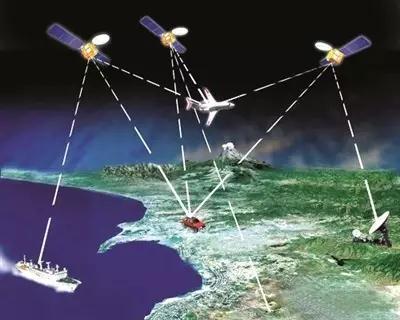
There is a famous saying in the industry: "The application of satellite navigation and positioning systems is only limited by imagination." It is no exaggeration to say that, as a typical national heavy weapon, it is like our water, electricity, and highways, and is the guarantee of our social construction foundation.
The Beidou system not only provides basic functions such as location, navigation and timing, but also provides communication functions. For example, one day a person drifts to an isolated island. If he chooses GPS, he can only know his location and cannot notify others to come to the rescue, so he can only survive on the deserted island. If he uses the Beidou system, the situation is completely different. He can not only know his location, but also send his location to people tens of kilometers away, hundreds of kilometers away, or even thousands of miles away, so that you can soon say goodbye to your GPS-wielding buddy on the rescue boat~
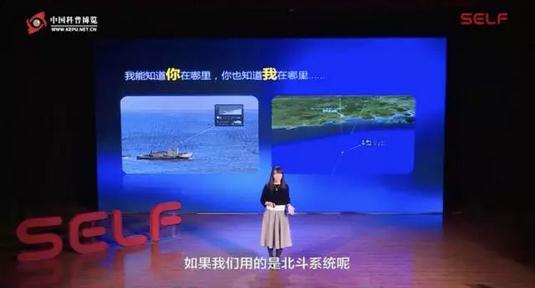
The Beidou system is very easy to use, why do people seem to rarely use Beidou in life now, it seems that there is a little more GPS. The GPS satellite navigation and positioning system was built about 20 years earlier than the Beidou system, and the 20-year historical gap cannot be filled overnight by our technology. The application and promotion of the GPS system has been very mature. For example, the cheapest GPS chip may be about two dollars, while the chip price of the Beidou system may still be generally around 100 yuan due to mass production and other reasons. "Unaffordable" restricts the development of Beidou, but unaffordable is not the main factor restricting the development of Beidou.

Around 2011, there was a piece of news that spread all over the Internet. At that time, the headlines used by the media were "Tsinghua girls cracked Beidou and sent it to the United States", or "Beidou’s tens of billions of investments were wasted" and so on, which was more sensational. So is Beidou really so vulnerable? Of course not. In fact, the real unreliable is the GPS system. Because the GPS system is only open to us, and the GPS signal is easy to change during the war. The United States once turned off the GPS signal to the European Union during the Gulf War. The European Union was also very dissatisfied, so in order to protect autonomy, the European Union began to build the Galileo system. For us, too, in order to ensure reliability, our country began to build its own Beidou system.

Back to the news of Tsinghua girl cracking Beidou, in fact, she just deciphered the pseudo-code sequence of Beidou’s civil code signal. First of all, during the construction of Beidou, for the sake of compatibility and interoperability, Beidou’s civil code design is in the same vein as GPS and Galileo, and there is no special design. Our country hopes that people all over the world can use Beidou, not only China’s Beidou, but also the world’s Beidou. She wants to crack this unencrypted civil code signal, which is actually not technically difficult. From the perspective of scientific research, it is a problem of signal detection and estimation. In fact, in 2012, our country has announced the ICD file of Beidou, telling everyone our civil code format, hoping that receiver manufacturers around the world can use this ICD file to produce corresponding Beidou receivers.

In addition to the civilian code, Beidou also has a military code. The military code has been specially designed such as encryption, which is stable and reliable. If you want to crack the military code system, we may suggest some simpler ways. That is to build a time-travel machine and eavesdrop on the side when you go back to the Beidou military code design. This technical difficulty is easier than technically cracking the Beidou military code. Therefore, everyone must believe that our Beidou system is very easy to use and very stable.

At the end of the speech, Xu Ying called on everyone to support the Beidou system more, and she and all the researchers dedicated to Beidou satellite navigation will also make unremitting efforts to let the Beidou giant ship continue to ride the wind and waves to the world.
Source: CCTV News, China Broadcasting Network, China Popular Science Expo